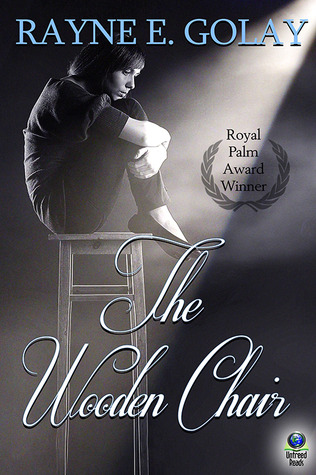 As I "close" the last page of this book, I'm left with a variety of thoughts roiling in my head...thoughts about how some behavior seems to be inherited...how sometimes those who seem evil are really the most miserable of all of us, and perhaps they need our pity more than we realize.
As I "close" the last page of this book, I'm left with a variety of thoughts roiling in my head...thoughts about how some behavior seems to be inherited...how sometimes those who seem evil are really the most miserable of all of us, and perhaps they need our pity more than we realize.There's no major conflict/plot to this book, no mystery. It's more of a psychological story as we read about a young girl in Finland during the war. Now, this is in a historical setting: the forties and fifties mostly, but it's not about history. Folks who don't care for historical fiction should not be deterred. It's a story that could very well take place now, albeit more difficultly, with the children's services now available to people.
It's a girl whose mother just hates her. For reasons unknown. The girl is subjected to emotional torture and abuse day after day, told she's ugly, good for nothing, locked in closets, neglected, unloved, while her brother receives all the adoring attention. Why does her mother hate her so?? It's never made clear. How does a mother loathe one child but adore the other? I don't know. Jealousy?
The novel goes on to show the girl growing up into a needy young woman. She very slowly starts becoming her mother, drowning herself in a bottle of wine at the slightest hurdle. The man doesn't call when he says he will. Drown in a bottle and cry. (Though in her defense, the man was annoying. One minute he's all "you're too young for me" and then next he can't leave her alone. I mean, he knew how young she was was when he first asked her out. Quit leading the girl on. Jackass.)
But the heroine rises above it. She gets therapy and becomes a counselor herself--counseling those with alcohol addiction. She becomes a loving mother, breaking the cycle.
The heroine has blindness in one eye and a "rolling" eyeball for much of the book. This causes a whole 'nother set of problems. As strange as this will sound, I was fascinated by these parts of the story: by the surgeries, the techniques, the struggles with the disability. I felt this aspect of the book was very well done.
As I said above, the book made me think long and hard about behavior patterns and it made me take a long figurative look at cruel people in my own life. In the past I would look at those people and just think they were evil bastards...but now I sit here and wonder what's made them that way. By the time I read the last page of this book, I actually felt sorry for the evil mother. There was a lot going on there, a lot that made her the way she was. I mean, seriously, in the end, who had the most miserable life? The one who made others' lives hell, or the one who learns to leave it all behind?
That being said, I do have some quibbles:
The first half really dragged. I could skim some parts and not miss a beat. It was a lot of repetition: Mom is mean. Little girl cries. Nobody helps her. Mom is mean. Little girl cries. Grandma, uncle, grandpa, and dad show her love but don't help her. Repeat.
There was a lot of tears on faces, sobbing, and crying. Not saying I wouldn't cry myself in some of these instances, but when reading a book and it seems someone is crying or sobbing on almost every other page, it begins to grow irritating.
I received this book from the author in exchange for an honest review.


No comments:
Post a Comment